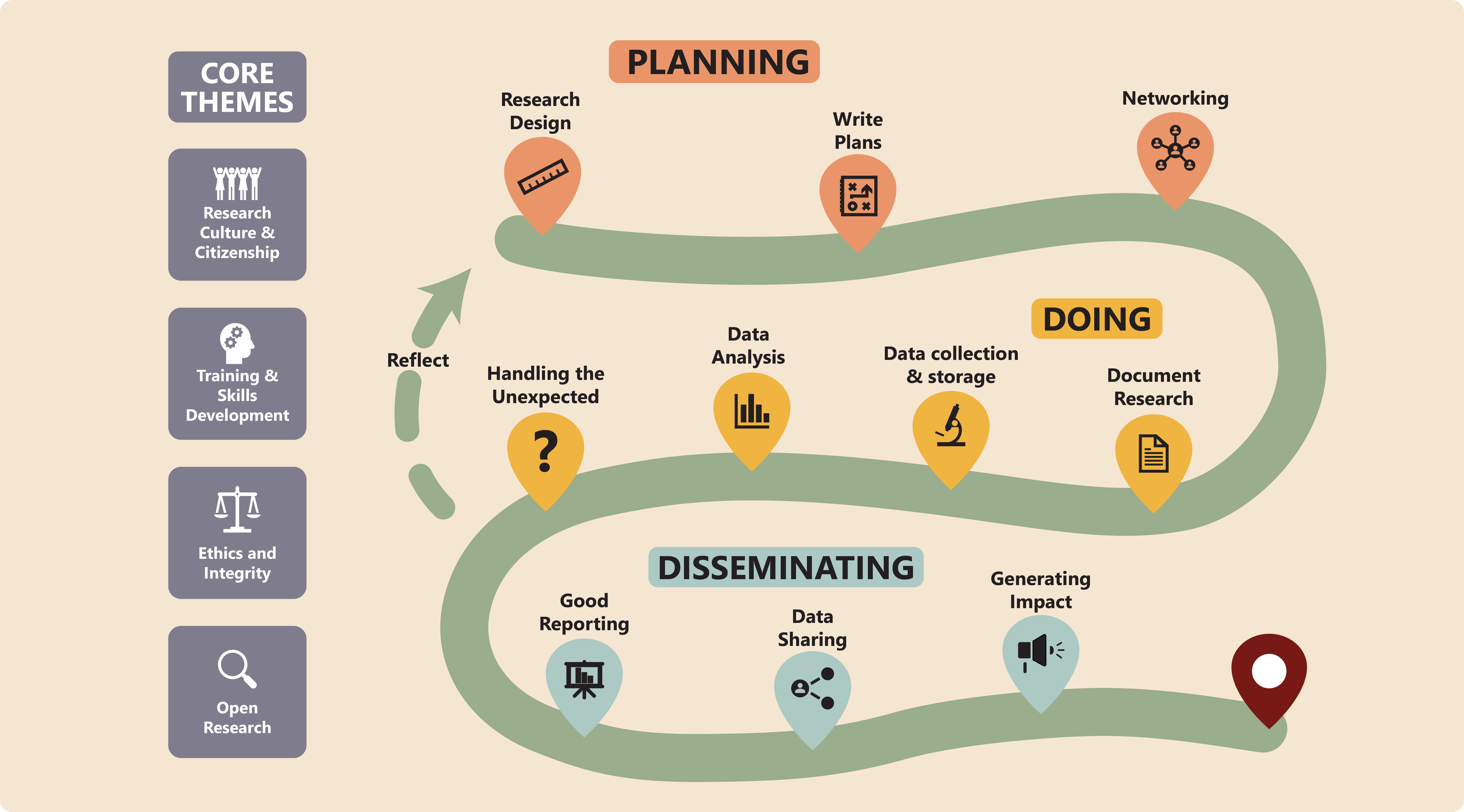Handling the Unexpected

In research projects, things might not always go as planned. You may not manage to meet your initial objectives, make mistakes, face unexpected issues, get surprising results, or deal with technical problems. These challenges can occur, but they can be managed.

-
Before or during your projects, you may want to consider what could theoretically go wrong and have contingency plans in mind for when these eventualities do occur. Discuss these with people involved, including your supervisor or line manager.
-
Be aware of your initial research objectives and the type of data or results you planned to or thought you would achieve, so that you are able to determine when something is indeed unexpected, as early on as possible.
-
If something unexpected happens, document this carefully.
-
ALWAYS speak up if you notice something unexpected or an error; to not do so would be a breach of research integrity principles.
-
Be prepared to have to alter your plans for any dependent projects and/or results dissemination. You may have to repeat experiments, test different factors in a separate experiment, do a follow-up experiment, or abandon this experiment altogether.
-
While some errors are unavoidable, others may come from mistakes you or a colleague make. Remember, mistakes do happen and are a natural part of research. We can often fix them and almost always learn from them.
-
Some research may produce negative findings, i.e., the thing that you were testing did not have an effect or had an opposite effect to what you expected.
-
Check your methods and results, making sure that e.g. you had appropriate controls in place, and they behaved as expected, or rule out equipment/recording errors
-
It is important to determine the source of this discrepancy, i.e., why you didn’t find what you expected. This finding could be interesting or important and/or help avoid others repeating the same thing.
-
Remember that negative findings or “null results” are not always a sign of an error or mistake and can be an important finding, including failure to replicate a study.
-
You should endeavour to publish any important negative findings, even if they seem less enticing or exciting than what you were expecting or than “positive” results. This helps avoid publication bias and research waste.
-
Avenues for publishing this research may differ, but publishing negative findings is just as important as publishing positive ones.
-
- Bik E. M. (2024). Publishing negative results is good for science. Access microbiology, 6(4), 000792. https://doi.org/10.1099/acmi.0.000792
- Nimpf, S., & Keays, D. A. (2020). Why (and how) we should publish negative data. EMBO reports, 21(1), e49775. https://doi.org/10.15252/embr.201949775
- Joober, R., Schmitz, N., Annable, L., & Boksa, P. (2012). Publication bias: what are the challenges and can they be overcome?. Journal of psychiatry & neuroscience : JPN, 37(3), 149–152. https://doi.org/10.1503/jpn.120065
- Nair A. S. (2019). Publication bias - Importance of studies with negative results!. Indian journal of anaesthesia, 63(6), 505–507. https://doi.org/10.4103/ija.IJA_142_19